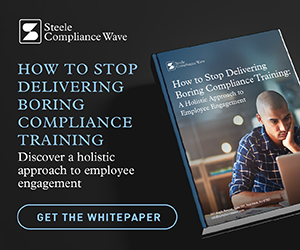9/9/16: In the span of a week, two newsworthy actions happened related to the SEC’s whistleblower program. On August 16, the SEC announced a $340,000 settlement with a healthcare insurance provider that, according to SEC, illegally used “… severance agreements requiring outgoing employees to waive their ability to obtain monetary awards from the SEC’s whistleblower program.” That’s clearly a violation of every imaginable whistleblower protection measure and it’s illegal. Five days later, SEC announced that it had issued its first Whistleblower Program Award. Now, the two aren’t related but there is something beautifully ironic in the timing.
Compliance Communications Blog
9/9/16: Antitrust guidelines might not be the most exciting topic, but intellectual property is definitely the most exciting – and valuable – asset of many companies. Recently, the US Department of Justice’s Antitrust Division and the Federal Trade Commission asked for public comment on a proposed update of the Antitrust Guidelines for the Licensing of Intellectual Property (also known as the IP Licensing Guidelines). The original guidelines, which established the agencies’ enforcement policies, were issued in 1995. It’s definitely time for an update to policies relating to the licensing of intellectual property protected by patent, copyright and trade secret law.
9/9/16: Every industry faces unique compliance challenges and operational risks but the modern healthcare industry – hospitals, insurance companies, healthcare professionals, even life science companies – are walloped on all sides by regulatory and legal risks. In a post on his Corruption, Crime & Compliance blog, Michael Volkov focuses on some of those risks, writing, “Looking over a healthcare organization’s risk profile means considering the application of the Anti-Kickback statute, Stark Self-Referral, False Claims Act and HIPAA privacy rule to the organization’s activities.” Fortunately, Volkov offers help in how healthcare organizations can move through the complex business of accurate risk assessment. He writes, “Starting with each general category for a relevant law, a risk assessment has to focus on financial relationships, information collection, storage and use, and patient reimbursement and revenue cycle issues.”
9/9/16: Say what? The Tudors and Henry VIII were many things, but characters capable of teaching something about modern compliance? They are exactly that in the hands of Tom Fox who brings readers through a pointed history lesson before concluding that it “… illustrates a key theme of compliance programs. It is that compliance programs must be flexible and have the ability to evolve.” Fox goes on, “Simply put, it is not in the business interest of US companies (or others subject to the Foreign Corrupt Practices Act [FCPA]) to have a static compliance program. Compliance programs must have the flexibility to respond to a wide variety of factors, including changing market conditions both inside a corporation and on the ground.”
8/18/16: An excellent article published on Bloomberg BNA’s Corporate Law & Accountability Report digs into voluntary self-disclosure in the US and UK of corporate misconduct.


